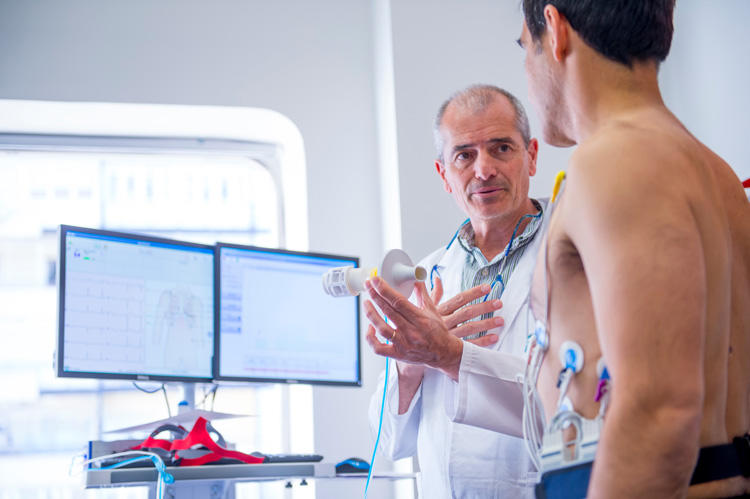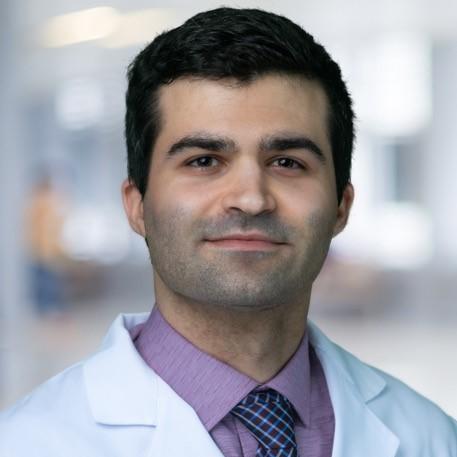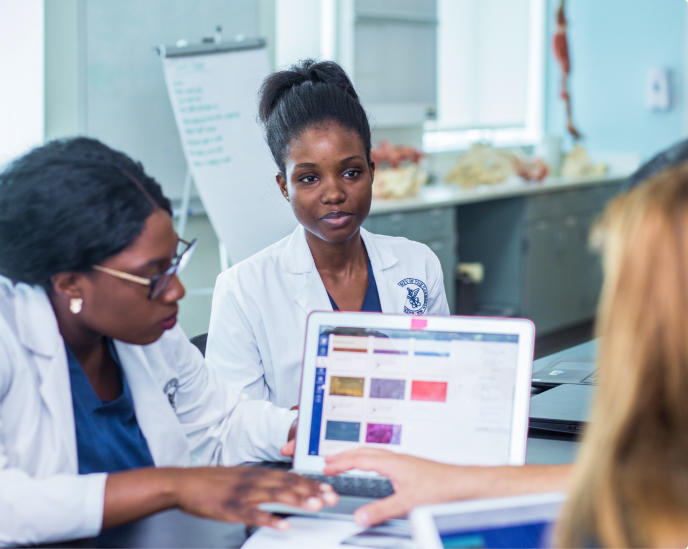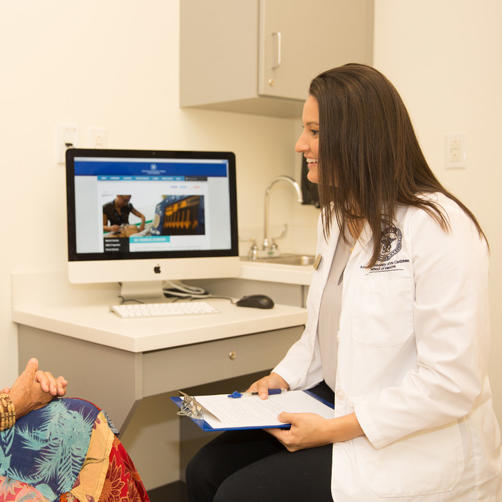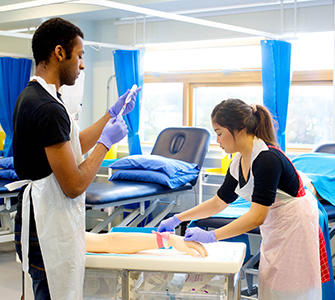Of all the body’s organs, it is difficult to imagine any more vital than the heart. From the time we are born until the time we die, the heart beats without rest, tirelessly pumping blood through nearly 100,000 miles of blood vessels. Together, the heart and blood vessels deliver life-giving nourishment to every corner of the human body.
Caring for this amazing system is the job of a cardiologist. But what is a cardiologist? A cardiologist is a medical doctor who specializes in assessing, diagnosing, and treating problems of the heart and blood vessels.
Cardiology is a high-stakes specialty. According to the Centers for Disease Control
The Cardiovascular System
If someone were to ask you “What is a cardiologist?” your first answer might be a heart doctor. Indeed, the word cardiologist comes from the Greek word for heart. However, cardiologists also treat disorders of the arteries, veins, and capillaries that carry blood to and from the body’s tissues. Together, the heart and blood vessels are known as the cardiovascular system.
What Does a Cardiologist Do?
Cardiologists treat a range of conditions. The most critical include heart attack and heart failure, in which the heart fails to pump sufficient blood around the body. Cardiologists may also treat arrhythmias (problems with heart rhythm) and congenital (inborn) heart conditions. They may aid patients with atherosclerosis, sometimes called hardening of the arteries, or hypertension (high blood pressure).
A cardiology examination typically begins with a review of the patient’s medical history and a physical examination. The doctor may weigh the patient, take the patient’s blood pressure, and listen to the heart and lungs using a stethoscope. All of these examinations may provide clues to what is going on inside the body.
A cardiologist may follow-up by ordering a variety of tests. In an electrocardiogram (EKG), electrodes are placed on the patient’s body to measure electrical activity within the heart, which regulates heartbeat. An echocardiogram makes use of high-frequency sound waves to see inside the living heart. An exercise or stress test may include an EKG and other tests conducted while the patient exercises on a treadmill, enabling doctors to see how the heart performs under stress.
Much of a cardiologist’s work involves noninvasive tests. Many interventions are also noninvasive, involving medication and lifestyle changes.
How to Become a Cardiologist
To be a cardiologist, you must first become a physician by graduating from an accredited medical school—such as American University of the Caribbean School of Medicine* (AUC). The path to a medical degree at AUC, which is located on the Caribbean island of St. Maarten, is the same as at United States-based schools: two years of medical science classes and two years of hands-on clinical training. For AUC students, the medical sciences curriculum is completed at the St. Maarten campus; the clinical training can be completed at affiliated teaching hospitals in the United States or in the United Kingdom.
AUC also partners with the University of Central Lancashire (UCLan) in the United Kingdom for a “UK-track” option. The first two years at UCLan focus on studying the medical sciences. Upon completion, students receive a Post Graduate Diploma in International Medical Sciences, which AUC recognizes as equivalent to its own medical sciences curriculum. During the final two years, students can then complete clinical training across AUC’s network of affiliated teaching hospitals.
During clinical training, AUC students complete core rotations in internal medicine, surgery, pediatrics, family medicine, obstetrics/ gynecology, and psychiatry. Each individual student, then, selects from among dozens of specialty elective clerkships to fulfill their remaining clinical requirements.
During the fourth and final year of medical school, students prepare for the next phase of their medical education: residency. At AUC, the Office of Career Advisement (OCA) can help students determine which residency specialty suits them best. The OCA then helps students navigate the National Resident Matching Program® (NRMP®)—a placement system which medical students who wish to become licensed in the United States use to “match” with a medical residency. Residencies are required to become a licensed physician, and they last from three to eight years. Future cardiologists must first do a three-year residency in internal medicine. The internist then completes three to five years of cardiovascular training—two years of which must include clinical training in the diagnosis and management of cardiovascular diseases.
In 2021, AUC had a first-time residency attainment rate of 97 percent for 2022-2023 graduates.* In recent years, AUC MDs have matched with internal medicine residencies at such hospitals as Anne Arundel Medical Center in Maryland; Baton Rouge General Medical Center in Louisiana; Cape Fear Valley Medical Center in North Carolina; and Providence Regional Medical Center Everett in Washington.
After the successful completion of internal medicine and cardiovascular training, a doctor may be certified by one of the boards of the American Board of Medical Specialties and apply for membership in the American College of Cardiology. Doctors who want to subspecialize in a specific field of cardiology must take an additional year or two of fellowship training.
Meet a Cardiologist
Vicken S. Zeitjian MD, a 2016 AUC graduate, is a cardiologist at the University of Texas Health Science Center, San Antonio. We asked Dr. Zeitjian to describe the role of a cardiologist.
Q: Why did you go into your specialty?
A: I chose cardiology due to its clinically diverse and multi-faceted nature. Cardiology is closely associated with all organ systems and requires a strong internal medicine background for comprehensive care. As a cardiologist, one will become an expert in hemodynamics, vascular anatomy, electrocardiography, primary prevention, cardiopulmonary resuscitation, imaging, and if desired, invasive management. Ultimately, I chose to go into interventional cardiology because of the exciting nature of high acuity cases and the ability to provide definitive care to complex patients. The field is continually growing with numerous trials being published on a daily basis and the development of both invasive and non-invasive approaches to improve mortality.
Q: Any advice to medical students considering the specialty?
A: Choosing a specialty is difficult. Start thinking about potential specialties early on, even during the first two years of medical school. Interest groups and clubs may be valuable. Also, I recommend getting in touch with recent alumni in the field who will provide guidance on the journey to fellowship. Consider an elective rotation in cardiology to get a better understanding of the various disciplines within the field. Overall, the road is long (3-year internal medicine residency, 3 years cardiology fellowship, possibly 1-2 years more for subspecialty), but absolutely worth it.
Q: What is the most rewarding part of your job?
A: The most rewarding part of cardiology is providing comprehensive care to medically complex patients. Heart disease often presents lifestyle limiting symptoms and is the most common cause of death in the United States; providing treatment to this population of patients is both challenging and gratifying. The extraordinary impact that a cardiologist has is seen both in the acute inpatient setting in critically ill patients and in the outpatient setting in the chronically ill patients who require close follow-up and preventative care.
If you want to become a doctor, and a career as a cardiologist appeals to you, learn more about the AUC MD Program and investigate the Office of Career Advisement. When you’re ready, take the next step on your path to a specialization in cardiology: apply for admission to American University of the Caribbean School of Medicine.
Do Cardiologists Do Surgery?
Cardiologists may be involved in a variety of relatively minor surgeries. For example, a cardiologist may assist in the implantation of a pacemaker device to regulate heartbeat. Cardiac catheterization is a test conducted using a tube inserted into a large blood vessel. In angioplasty, a balloon is inserted into an artery in an attempt to relieve blockage.
Major surgery, however, is left to specialty surgeons, rather than cardiologists. Open-heart surgery is conducted by specialists called cardiothoracic surgeons.
Subspecialties in Cardiology
Cardiology is itself a subspecialty of internal medicine, the care for and treatment of problems inside the body. But cardiology has a number of subspecialties of its own. Here are just a few:
- Cardiac electrophysiology. The heart is among the body’s most electric organs—electrical signals within the heart muscle regulate heartbeat. An electrophysiologist can relieve problems with heartbeat by surgically correcting the heart’s electrical circuitry or by implanting a device called a defibrillator.
- Advanced heart failure and transplantation involves working with patients with end-stage heart failure. A cardiologist in this subspecialty may consult in heart transplantation or in the implantation of mechanical devices to aid the struggling heart.
- Interventional cardiology involves the use of minimally invasive procedures to address cardiovascular problems. An interventional cardiologist may, for example, alleviate blockages of the arteries through the use of angioplasty or laser surgery.
- Nuclear cardiologists specialize in injecting radioactive dyes into the bloodstream to image the heart and blood vessels and identify cardiovascular problems.
How Long Does It Take to Become a Cardiologist?
Treating the body’s most vital organ is an awesome responsibility and requires a wealth of knowledge. All that schooling takes time—it can take 14 years or more to become a cardiologist. The reward is a fulfilling and high-demand career treating the body’s most vital organ.
Your Career as a Cardiologist
For a cardiologist, success requires a thorough understanding of physiology and anatomy. A cardiologist must also have the technical ability to administer tests and analyze reports. Finally, cardiologists must be confident decision makers.
Cardiologists frequently interact with patients who are facing serious or uncertain conditions, so empathy and communication skills are important. The cardiologist must also be able to communicate with fellow doctors, nurses, and other members of the care team.
Cardiology is a life or death specialty, and cardiac emergencies can happen at any hour of the day. A cardiologist must be prepared to work irregular hours and to share on-call duties with other members of the care team.
Many cardiologists work in a hospital setting. They can expect to provide a combination of emergency and long term care. A typical week for a hospital cardiologist might include rotations in their chosen subspecialty, in emergency intake, and in outpatient clinics. Other cardiologists work in private practice.
Now that you know the answer to the question, “What is a cardiologist?” are you ready to pursue a rewarding career treating the body’s most vital organ? Putting your finger on the pulse of this exciting specialty begins with entry to a quality medical school. Apply for admission AUC School of Medicine.
Related Links
- Med School Friends Now Neighbors in Practice
- How Kathryn Majdick Earned Her First Choice Residency
- Scholarship Winner Draws Inspiration from His Refugee Parents
*First time residency attainment rate is the percent of students attaining a 2023-24 residency position out of all graduates or expected graduates in 2022-23 who were active applicants in the 2023 NRMP match or who attained a residency position outside the NRMP match.


